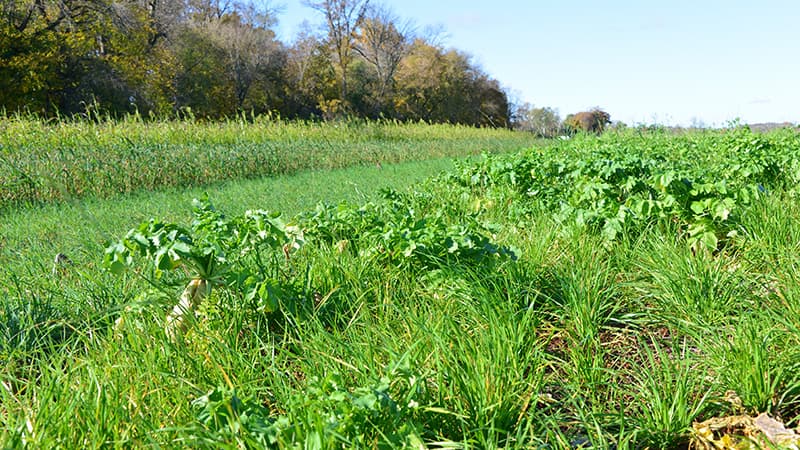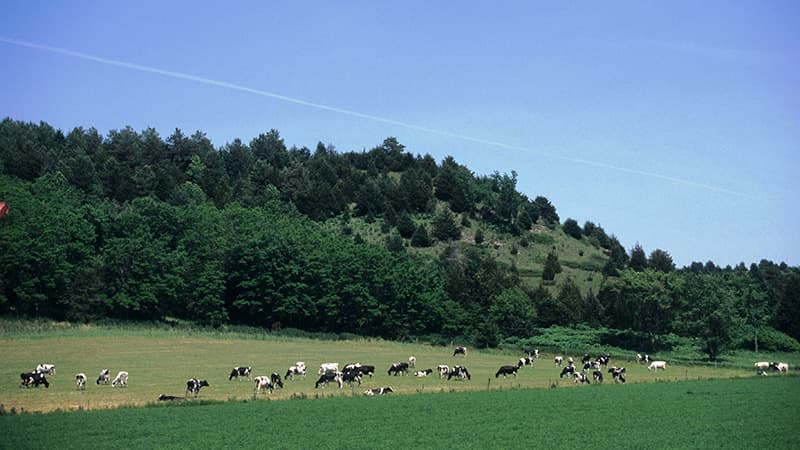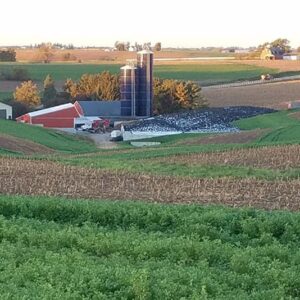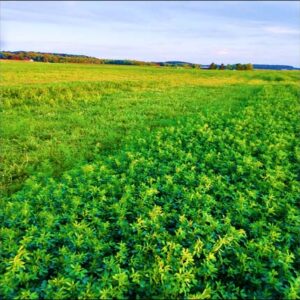Extreme rain events, wetter springs and falls, groundwater flooding, declining snow cover, winter “thaws,” changing seasons, more frequent extremely hot days, and droughts are among the climate impacts stressing Wisconsin farms in the most recent report from the Wisconsin Initiative on Climate Change Impacts (WICCI).
Yet, there is hope. Today there is a move in agriculture toward keeping fields green year-round, including a shift towards increasing living cover on farm fields and promoting rotational grazing. Farmers across Wisconsin are stepping up to the challenge and finding creative ways to incorporate climate smart practices into their farming operations. The WICCI Agriculture Working Group recommends these and other solutions to help Wisconsin agriculture become more climate resilient and reduce greenhouse gas emissions.
“Disruption of farm operations due to volatile weather patterns is increasing health risk and anxiety associated with farming in Wisconsin. With extreme weather becoming more common, the food production systems that support a thriving economy are increasingly at risk.”
WICCI Agriculture Working Group
Managed grazing systems have proven to be more resilient to climate change and the erratic and intense weather projected for Wisconsin. For example, in 2019 many farms that grow corn and soybeans were unable to plant their crops because of excessive rain, but perennial pastures grew well and could be harvested even when farm machinery was unable to get into fields.
Grazing also helps communities cope with the increase in extreme rainfall events that climate change brings. Land in well-managed perennial pastures help slow, absorb, and retain water. This can reduce the severity of flooding and damage to roads, bridges, and other infrastructure.


Wisconsin farms can also be part of reducing greenhouse gas emissions by promoting rotational grazing, increasing living cover on farm fields, and adopting minimal or no-till practices that keep the soil intact, while also reducing the number of passes made in a field. Practices to increase living cover on farm fields include improving the mixture of grasses, legumes, and other plants available for livestock grazing, using cover crops, and adding more perennials into the crop rotation.
Well-managed pastures and farm fields build and retain soil carbon, which can help reduce atmospheric carbon dioxide concentrations. Carbon dioxide, a heat-trapping gas emitted through the burning of fossil fuels, is one of the primary drivers of climate change. Soil health practices that promote carbon sequestration not only help farms become more resilient to changing weather patterns, but help to mitigate the effects of climate change.
There is hope for the future, but it’s up to us.
The Wisconsin Initiative on Climate Change Impacts (WICCI) is a statewide collaboration of scientists and stakeholders formed as a partnership between UW–Madison’s Nelson Institute for Environmental Studies and the Wisconsin Department of Natural Resources. WICCI’s goals are to evaluate climate change impacts on Wisconsin and foster solutions.
Agriculture Working Group - Stories
Support WICCI
Gifts to the Wisconsin Initiative on Climate Change Impacts (WICCI) Program Fund provide general, discretionary program support and are used to enhance and expand WICCI’s teaching, research, and public service roles. Gifts are also used to support partnership-building activities, include faculty, staff, and student recruitment, retention, and morale.
The Wisconsin Initiative on Climate Change Impacts (WICCI) is a statewide collaboration of scientists and stakeholders formed as a partnership between UW–Madison’s Nelson Institute for Environmental Studies and the Wisconsin Department of Natural Resources. WICCI’s goals are to evaluate climate change impacts on Wisconsin and foster solutions.

